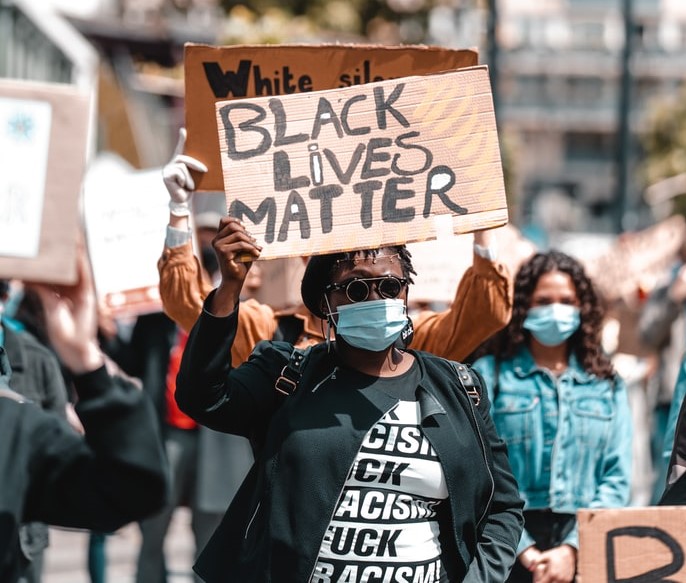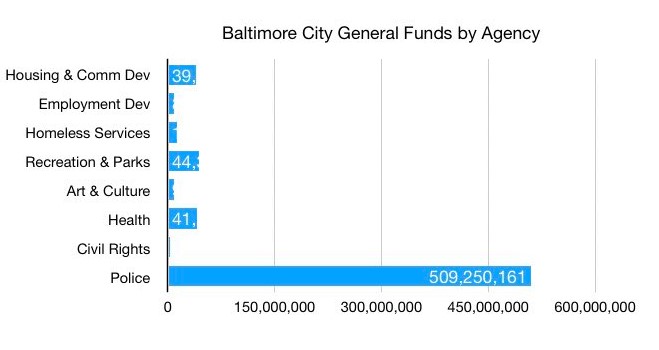
Over the weekend, I am sure you are aware, another Black person was killed by the police. Rayshard Brooks in Atlanta. He was asleep when the police woke him up and murdered him, like the police murdered Breonna Taylor while she was asleep in her own home. The list of names of Black people being murdered by the police keeps growing, even while we’re marching. Over here in Seattle, there is a strong call to defund the police and decriminalize Seattle, with many people, including me, signing on to this petition asking to halve the police budget in Seattle and investing that money in mental health, housing, and other services.
This moment in history is a test for nonprofit and philanthropy, and unfortunately, I don’t think we are doing very well. Our sector has been frozen for so long by fear. Nonprofits fear not having enough resources to keep going. Foundations fear what will happen when they increase their payout rate beyond the pathetic minimum 5%. Fundraisers fear upsetting donors when they bring up difficult topics like white supremacy. Staff fear their boards. Boards fear giving staff too much power. The entire sector is fearful of political engagement. And most people, me included, fear losing their livelihoods and means of feeding their families if they rock the boat too much.
This is not to say that we don’t do important and meaningful work—we do, everyday—or that our fears are not valid, but the result of all this fear is that we are now in a sort of “equity rut,” where we respond to the symptoms of injustice instead of addressing its root causes, where we engage in performative actions and endless intellectualizing that we’ve repeatedly tricked ourselves into believing are catalytic change.
The saddest result though is that our sector, little by little, over decades of internalized fear, has lost its collective imagination. Like most of society, it can no longer envision a world that’s possible. Most of us, without realizing it, have resigned ourselves to the belief that the world is always going to be crappy, and all we can do is help lessen the pain for the unfortunate souls living in it for as long as we can. Our visions say “a community without poverty and racism and everyone thrives” or whatever, but our strategic plans are incremental, safe, and unlikely to upset people.

We see this lack of imagination right now in the discourses about defunding the police. Many of us cannot imagine a society without a strong police presence, where crimes would be significantly lower because people would have access to healthcare, education, housing, jobs, arts, recreation, restorative accountability, and civic engagement. We have accepted a strong police presence as normal. This is why most cities’ police budgets are obscene in comparison to other line items. Take a look at Baltimore’s proposed budget. In what dystopian science-fiction novel would this be normal and acceptable? How did we get here? Why have we not fought harder against it? Martin Luther King Jr. once said, “A nation that continues year after year to spend more money on military defense than on programs of social uplift is approaching spiritual death.”
Sadly, even if we can imagine a society with a budget that reflects better values, we cannot imagine anything that we can do that would successfully bring that about. We cannot imagine that other people would support it, would vote for it. This why we argue over whether “defund the police” is too “alienating” a slogan, unable to imagine that the public would accept it. This is why for decades we have rallied behind reforming the police, which has not worked, instead of abolishing a racist and unaccountable system of violence that is rooted in slavery.
Our lack of imagination leads to learned-helplessness and self-fulfilling prophecies. It leads to solutions privilege, where we cannot perceive the solutions that challenge our privileges and our limited view of what’s possible, usually solutions offered by the people most affected by white supremacy and systemic racism. While there is a lot of headwind in the movement to defund the police, almost twice as many Black folks (57%) support it as compared to white folks (33%). If our sector means what it says about lifting up the voices that are most affected by injustice, if we mean it when we release our Black Lives Matter statements, then shouldn’t we also be aligned with what the majority of Black folks propose as solutions?
As my friend and colleague Chrissy Shimizu says, “We work in this sector because we believe that safety comes from care and access to housing, food, peer counseling, and other forms of mutual aid; not down the barrel of a gun. So why do we send cops in to do the jobs we know best? Standing in alignment with our missions requires us to stand with the material demands of the Black community to defund the police and invest in the things that actually keep our communities safe.”
I know it can seem daunting and unrealistic many of the things we are fighting for. But there was a time when many people, even progressive ones, didn’t think the abolition of slavery was possible. There was a time when people didn’t think women would ever get to vote or that marriage equality would happen in their lifetimes. Black Lives Matter as a movement itself was once considered fringe; now it’s global. Defunding and even abolishing the police was once so far out of the norm of possibility. It’s made significant progress, and we, as a sector whose purpose is to create a just and inclusive society, must be behind it.
We need to individually and collectively remember why we entered into this work. We need to reawaken our vision of what’s possible and work to achieve it. Isn’t this what our sector is for, what we all signed up for? Let us dream of and work toward a world we want to see, including defunding the police, and so many other things. And when we think that world is impossible to realize, let’s remember the words of Muhammad Ali:
“Impossible is just a big word thrown around by small men who find it easier to live in the world they’ve been given than to explore the power they have to change it. Impossible is not a fact. It’s an opinion. Impossible is not a declaration. It’s a dare. Impossible is potential. Impossible is temporary. Impossible is nothing.”
—
Donate to these orgs that support Black trans people
These Black Lives Matter petitions still need signatures to reach their target
Edgar Villanueva of Decolonizing Wealth and I will have an Instagram Live chat next week, 6/22 at 1pm PST, where we will discuss nonprofit and philanthropy. Join us on Instagram by following @VillanuevaEdgar and @nonprofitAF
Discover more from Nonprofit AF
Subscribe to get the latest posts sent to your email.

